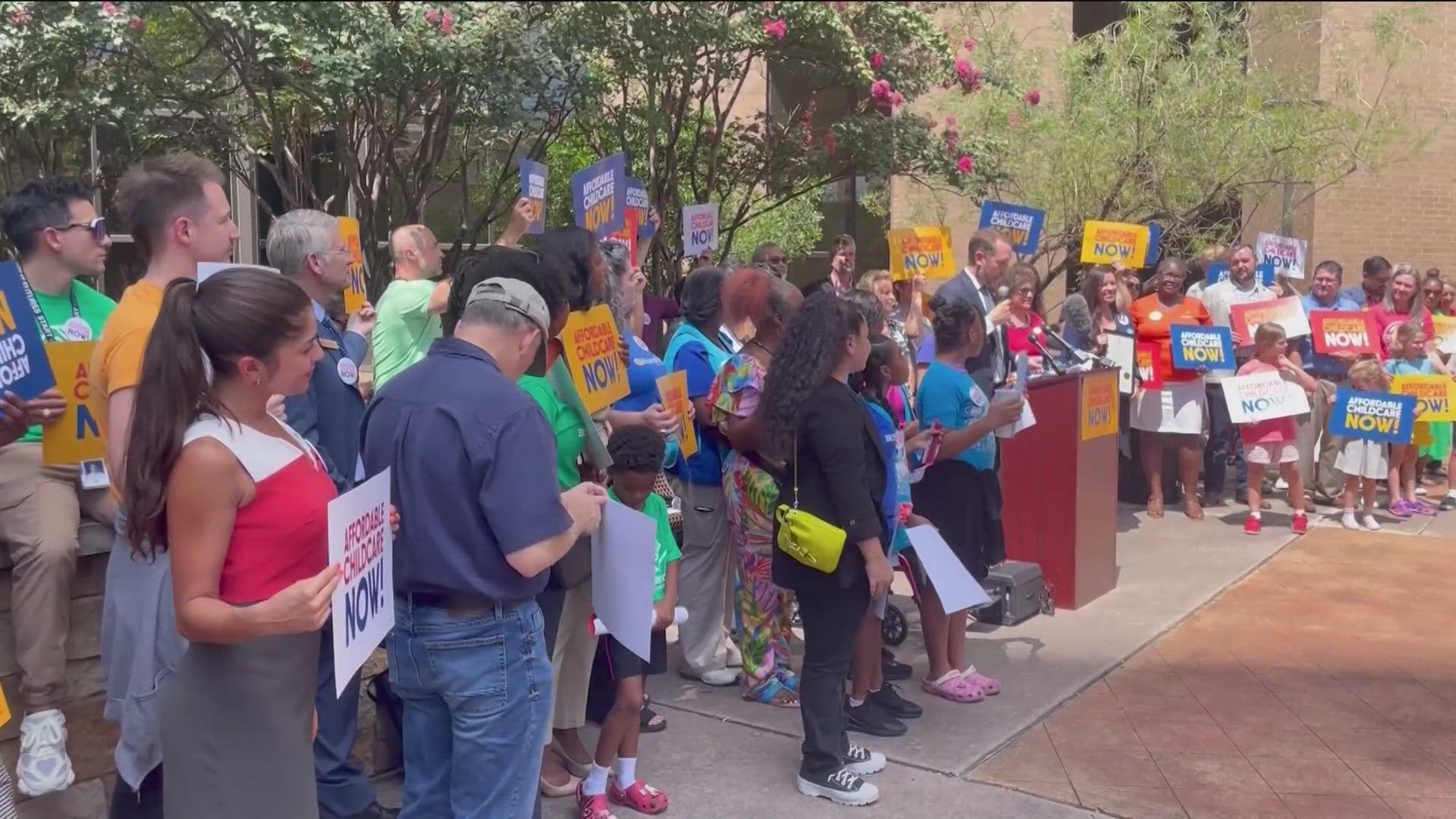AUSTIN, Texas — Sasha Nelson is the single mother of a 4-year-old son and is doing what she can to make ends meet, with one consistent need being child care. But for her, it comes at a cost.
"The full price of it would be more than half of my monthly income, and that doesn't leave a lot for everything else when it comes to rent or utilities," Nelson said. "I'm in that gray area where I don't qualify for things like food stamps, Medicaid is being phased out, having to jump through all these loopholes."
To pay for child care, Nelson relies on scholarships and financial assistance, but she is frustrated at the lack of options in Central Texas.
"It goes along with the whole thing of 'it takes a village.' This is me. This is parents needing the village. Like, where? Where is the village?" Nelson asked.
Now she is looking at Travis County's Proposition A as a saving grace. Voters will decide whether to approve spending money to make child care and after-school programming more affordable for eligible families.
It would increase property taxes by 2.5 cents per $100 valuation, which county leaders say comes out to over $120 more a year for the average Travis County property owner.
"Right now, so many families and their caregivers are staying home and not entering the workforce because of the overwhelming cost of child care. That means our workforce is getting smaller," said Patrick Torres, executive director of the nonprofit Creative Action, which provides arts education after school.
If Prop A passes, Torres said programs like his will be able to offer subsidized opportunities for families who want to participate.
"This kind of community-wide, county-wide investment in our young people will just give people access," Torres said.
But Don Zimmerman with the Travis County Taxpayers Union believes if the proposition passes, it will just add to the city's affordability crisis.
"Every tax increase is just another cup of coffee. You know, property taxes. It's death by a thousand cuts," Zimmerman said. "Are they going to ask us in a couple of years for another tax increase to subsidize groceries, another tax increase to subsidize rent?"
It is finding resources for families with different ideas on how to get there.
"It's juggling a lot of things, so child care is just so vitally important," Nelson said.
If the measure passes, it would generate $75 million annually. For a one-stop guide on everything you need to know about voting, click here.

